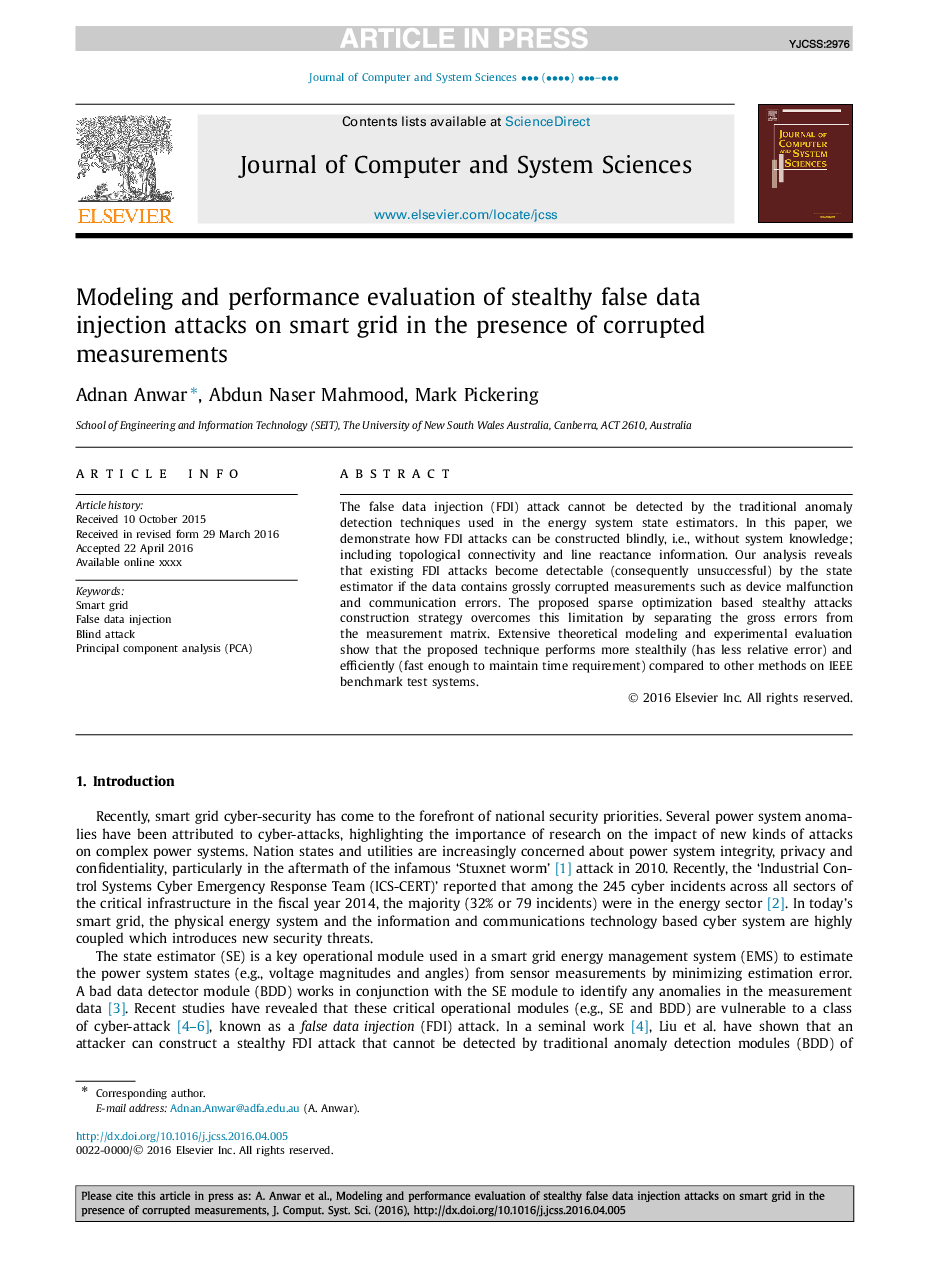| Article ID | Journal | Published Year | Pages | File Type |
|---|---|---|---|---|
| 4951278 | Journal of Computer and System Sciences | 2017 | 15 Pages |
Abstract
The false data injection (FDI) attack cannot be detected by the traditional anomaly detection techniques used in the energy system state estimators. In this paper, we demonstrate how FDI attacks can be constructed blindly, i.e., without system knowledge; including topological connectivity and line reactance information. Our analysis reveals that existing FDI attacks become detectable (consequently unsuccessful) by the state estimator if the data contains grossly corrupted measurements such as device malfunction and communication errors. The proposed sparse optimization based stealthy attacks construction strategy overcomes this limitation by separating the gross errors from the measurement matrix. Extensive theoretical modeling and experimental evaluation show that the proposed technique performs more stealthily (has less relative error) and efficiently (fast enough to maintain time requirement) compared to other methods on IEEE benchmark test systems.
Related Topics
Physical Sciences and Engineering
Computer Science
Computational Theory and Mathematics
Authors
Adnan Anwar, Abdun Naser Mahmood, Mark Pickering,
